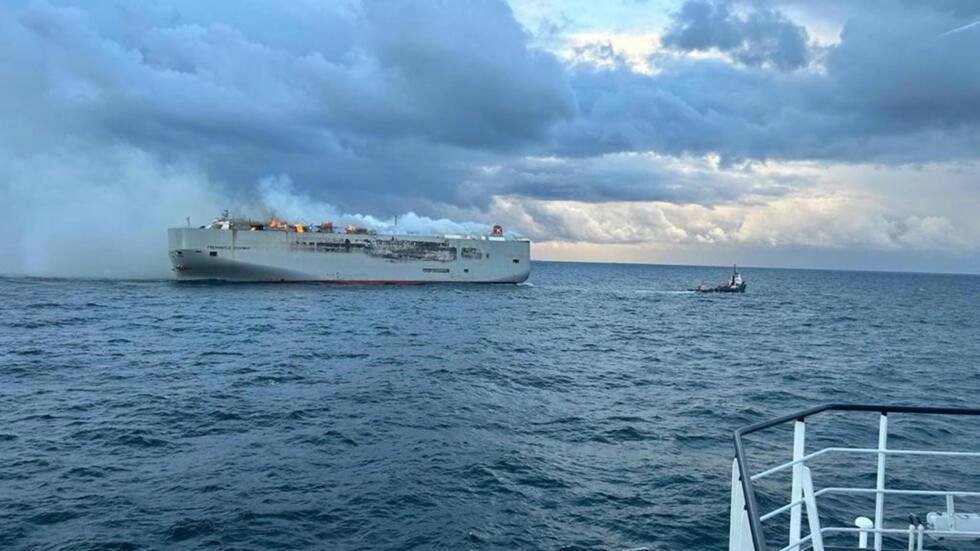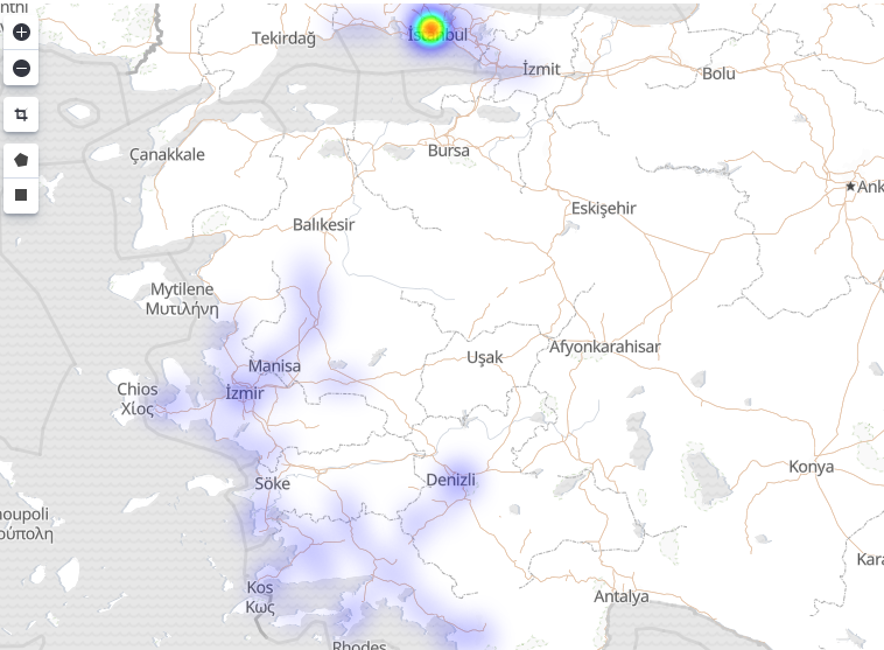The vessel is carrying electric vehicles and is suspected to be the cause of a deadly fire, prompting an investigation as reported to Dutch media by the ship's owners, Shoei Kisen Kaisha. The car carrier named Fremantle Highway had approximately 3,000 vehicles on board and was en route to Singapore when the fire erupted. The company is currently working with local authorities, salvors, and the ship management company to extinguish the fire. While there is a strong possibility that the fire started with the electric cars on board, the exact cause is yet to be determined pending the investigation.
Rescue operations took place after receiving a fire report about 14.5 nautical miles off the northern Dutch island of Ameland. All 23 crew members were safely evacuated, but unfortunately, one person lost their life, and several others were injured during the incident. The fire is expected to continue burning for some time, and efforts are being made to cool the ship's structure and prevent further damage. The vessel is currently located near the ecologically sensitive islands of Waddensee, raising concerns about potential environmental risks if the ship were to sink.
The Waddensee area is a UNESCO World Heritage Site with a rich diversity of aquatic and terrestrial species, including fish and marine mammals like seals and porpoises. Therefore, preventing any environmental damage is of utmost importance.
The Fremantle Highway is a large car carrier ship, and the injured sailors, mostly from India, have been provided medical attention. Salvage operations are ongoing to minimize the damage and prevent the ship from sinking. The ship has been secured to prevent it from drifting and blocking an important sailing route into Germany.
Fires on car-carrying ships have been a significant concern for insurers, given the potential for substantial losses. A previous incident involved the sinking of the Felicity Ace in the Atlantic Ocean, carrying thousands of vehicles from a German car manufacturer.
Despite the ongoing incident, holidaymakers on Ameland's popular beaches appear unaffected, and authorities are closely monitoring the situation to handle it as effectively as possible.
IoT and maritime sensors can help with the early detection of fires and reduce risk, cost and harm.










